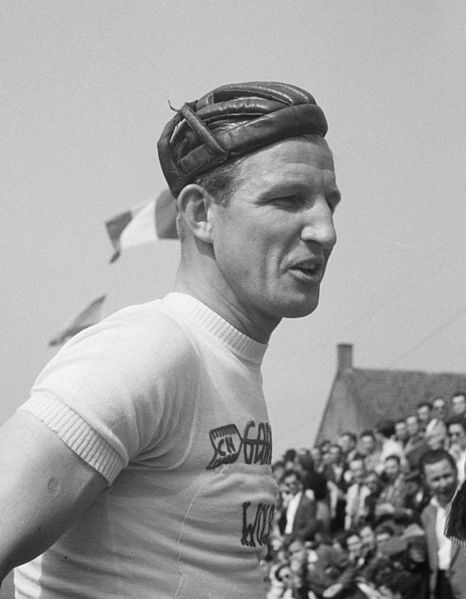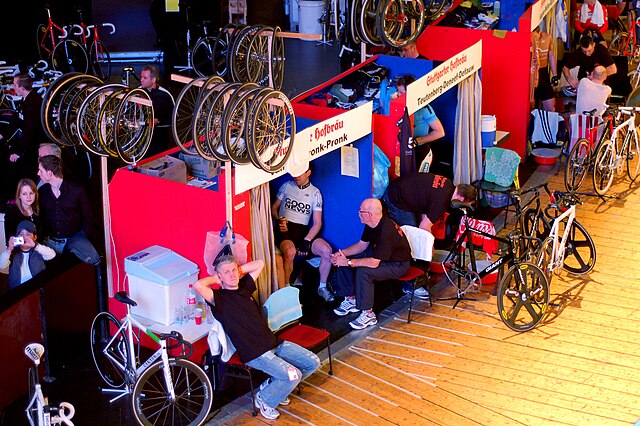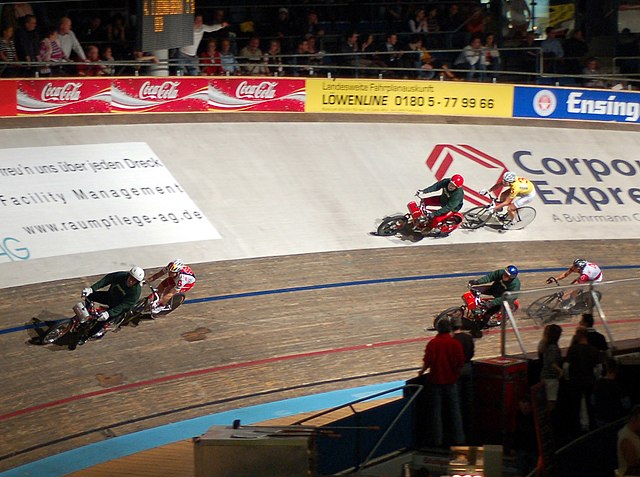Gerrit Schulte was a Dutch professional track bicycle racer. Between 1940 and 1960 he won 19 six-day races out of 73 starts and was one of the dominant Six days racers of his time. Schulte was as well successful in track pursuit, becoming national champion ten times, European champion twice and world champion once, in 1948, when he beat Fausto Coppi in the final. He was also successful as a road race cyclists, becoming national champion three times and winning a stage in the 1938 Tour de France. Since 1955, the Gerrit Schulte Trophy has been awarded by the national federation to the best professional rider in the Netherlands.
Gerrit Schulte in 1952
Schulte before his last race in Antwerpen in March 1960
Six-day cycling is a track cycling event that takes place over six days. Six-day races started in Britain, spread to many regions of the world, were brought to their modern style in the United States and are now mainly a European event. Initially, individuals competed alone, the winner being the individual who completed the most laps. However, the format was changed to allow teams, one rider racing while the other rested. The 24-hours a day regime has also been relaxed, so that most six-day races involve six nights of racing, typically from 6pm to 2am, on indoor tracks (velodromes). Six-day events are annually hosted in London, Berlin, Ghent, Copenhagen, Hong Kong, Manchester, Melbourne and Brisbane.
Racing at the 2007 Six Days of Dortmund
A six-day race at Madison Square Garden II in December 1908
Riders rest in small cabins beside the track when the race is in progress
Riders compete not only in madisons but in subsidiary competitions behind pacers






